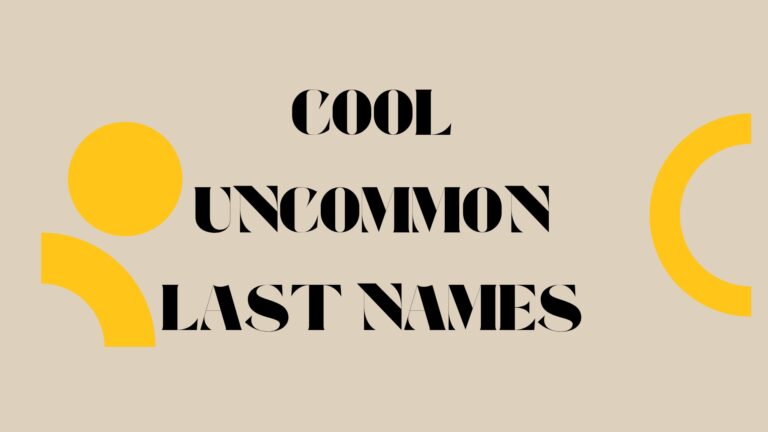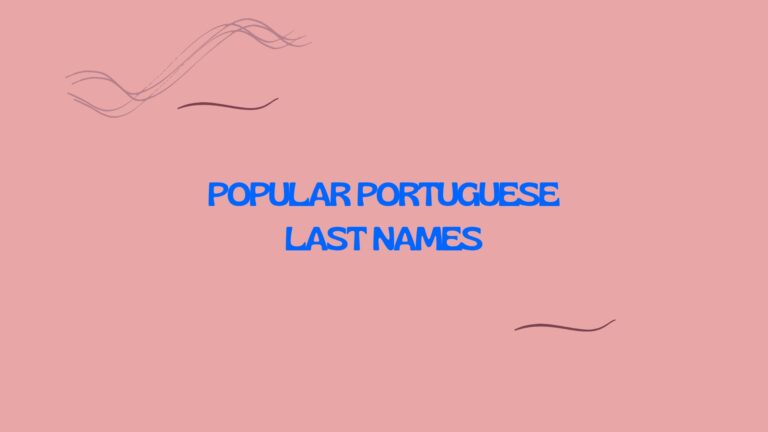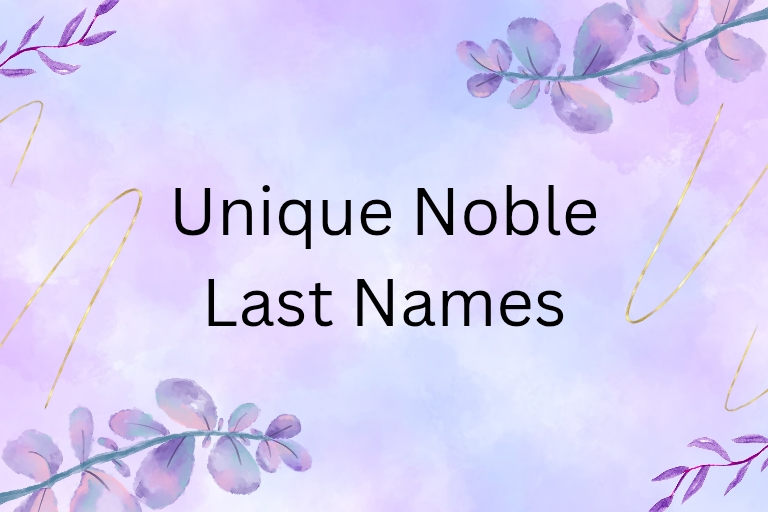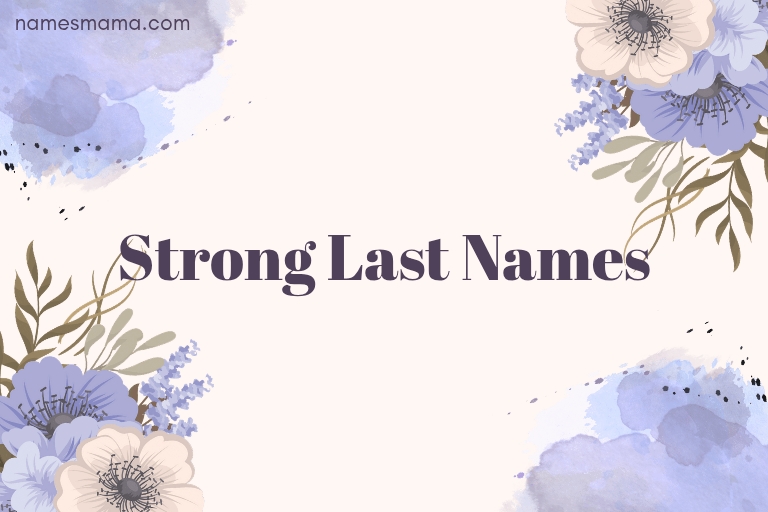100 Popular Norwegian Last Names
Norwegian last names are deeply connected to the history, geography, and culture of Norway.
They offer hints about family lineage, profession, and environment.
From the patronymics associated with fathers’ names to those that derive from the beauties of nature, Norwegian surnames unite the ancestral past with personal identity-a little bit of history packed in each surname.
This article will uncover some of the interesting Norwegian last names and tell you what those names mean and how they originated and developed.
Norwegian Last Names
Hansen – Derived from the first name “Hans,” meaning “son of Hans.”
Olsen – Meaning “son of Ole,” where Ole is a common first name in Norway.
Larsen – Meaning “son of Lars,” a traditional name derived from the Roman name Laurentius.
Johansen – Meaning “son of Johan” (John).
Pedersen – Meaning “son of Peder,” the Norwegian form of Peter.
Nilsen – Meaning “son of Nils,” a common name derived from Nicholas.
Andersen – Meaning “son of Anders,” the Scandinavian form of Andrew.
Eriksen – Meaning “son of Erik,” a name meaning “eternal ruler.”
Berg – Meaning “mountain” or “hill,” often used for someone living near a mountain or hill.
Haug – Meaning “hill” or “mound,” often referring to someone living near a hill or a mound.
Kristensen – Meaning “son of Kristian” (Christian).
Sørensen – Meaning “son of Søren,” a Danish form of the Latin name Severinus.
Jakobsen – Meaning “son of Jakob” (Jacob).
Andersson – Meaning “son of Anders.”
Lindberg – Derived from “lind” (lime tree) and “berg” (mountain), referring to someone living near a lime tree mountain.
Tangen – Referring to someone living near a point or headland, derived from “tang” (point).
Stensrud – Meaning “stone ford,” referring to a ford near stones or rocks.
Holm – Refers to someone living on a small island or a piece of land near water.
Hansen – Derived from the name Hans, meaning “son of Hans.”
Klingenberg – Refers to someone from a place named “Klingenberg,” possibly meaning “clearing on a hill.”
Viken – Refers to someone from the Viken region, meaning “bay” or “inlet.”
Hoff – Meaning “farm” or “court,” often referring to someone who worked on or lived near a farm.
Rasmussen – Meaning “son of Rasmus,” which comes from the Greek name Erasmus.
Foss – Meaning “waterfall,” referring to someone living near or working around a waterfall.
Bakke – Meaning “hill” or “ridge,” referring to someone living near a hill.
Solberg – Derived from “sol” (sun) and “berg” (mountain), meaning “sun mountain.”
Nygard – Meaning “new farm,” referring to someone living on or working a new farm.
Grønneberg – Meaning “green mountain,” referring to a location near a green hill or area.
Vik – Refers to someone who lived near a bay, inlet, or small cove.
Sevaldsen – Meaning “son of Sevald,” derived from the Old Norse name “Sevald.”
Falk – Meaning “falcon,” likely referring to someone with a connection to birds of prey.
Viken – Refers to the region of Viken, meaning “bay” or “inlet.”
Tollnes – Meaning “toll is paid” or “from the toll station,” indicating a person who worked at or lived near a toll station.
Nergaard – Meaning “lower farm,” referring to someone who lived on a farm located lower down.
Aasen – Meaning “hill” or “mound,” used for someone living near a raised area of land.
Løkke – Meaning “small meadow” or “pasture.”
Moe – Meaning “marsh” or “moors,” referring to someone living near or working on marshland.
Gundersen – Meaning “son of Gunder,” a variation of the name “Gunder,” meaning “battle.”
Bjerke – Meaning “birch tree,” likely referring to someone living near a birch tree grove.
Haugen – Meaning “the hill,” referring to someone living near a prominent hill.
Aarseth – Meaning “farm at the end of a ridge,” referring to someone living on a farm at the edge of a ridge.
Dahl – Meaning “valley,” referring to someone living in a valley.
Sundby – Derived from “sund” (strait) and “by” (town), referring to a town near a strait or narrow waterway.
Østby – Meaning “eastern town,” referring to a settlement located to the east.
Vold – Refers to someone living near or working at a fort or stronghold, derived from Old Norse “völlr” (field, meadow).
Ness – Meaning “promontory” or “headland,” indicating someone living near a promontory or point of land.
Løland – Meaning “meadow land,” referring to someone living in or owning a meadow or pasture.
Hegge – Derived from “hegg,” meaning “cherry tree” or “hedge,” referring to someone living near a cherry tree or hedge.
Skar – Meaning “clearing” or “pasture,” referring to someone who lived in a cleared area of land.
Hjorth – Meaning “deer,” referring to a person or family associated with deer or living in a forested area.
Skogen – Meaning “the forest,” referring to someone living near or in a forest.
Nerland – Meaning “lower land,” referring to someone living in a lower area or valley.
Røed – Meaning “cleared land” or “field,” referring to land that was cleared for farming.
Sunde – Refers to someone living near a narrow passage or strait between two bodies of water.
Wangen – Refers to a “meadow” or “field,” often used for someone who lived near or worked on a field.
Sletner – Referring to a “hilly area” or “mountain slope.”
Gjerde – Meaning “fence,” referring to someone who built or lived near a fence.
Tollaksen – Meaning “son of Tollak,” a personal name derived from Old Norse.
Bjørnsen – Meaning “son of Bjørn,” meaning “bear.”
Sundal – Referring to someone living in or near a valley by the sea or a fjord.
Dokken – Meaning “the dock,” referring to someone who lived or worked near a dock or pier.
Myhre – Meaning “marsh” or “bog,” indicating someone living near a marshy area.
Moe – Referring to “a moor” or “a marsh,” usually for someone living near wetland areas.
Størmer – Meaning “storm” or “thunder,” referring to someone who may have lived near a place with frequent storms.
Alm – Referring to a “hazel tree,” often associated with someone living near or working with hazel trees.
Torseth – Meaning “Thor’s hill,” referring to a hill dedicated to the Norse god Thor.
Lunde – Meaning “grove,” often referring to someone living near a grove of trees.
Vigdal – Derived from “vig” (battle) and “dal” (valley), meaning “battle valley.”
Fisker – Meaning “fisherman,” referring to someone who worked as a fisherman.
Aarnes – Meaning “son of Arne,” derived from the Old Norse name Arne, meaning “eagle.”
Løkken – Referring to “a small farm” or “settlement,” used for someone from a small rural farm.
Malm – Referring to “ore” or “mineral,” indicating someone who worked with or lived near mineral-rich areas.
Helle – Meaning “rock,” often used for someone living near or on a rocky area.
Rønning – Referring to “a meadow” or “a clearing,” often in relation to farming.
Kjeholt – Referring to “a hollow” or “a dip in the land,” typically near a hillside or depression.
Våg – Meaning “bay” or “cove,” referring to someone living near a sheltered bay or coastal area.
Vig – Referring to a “bay” or “cove,” similar to “Våg,” used for coastal dwellers.
Lund – Meaning “grove,” often referring to someone who lived near a small forest or wooded area.
Hoffstad – Derived from “hoff” (court) and “stad” (place), meaning “court place” or “farm.”
Sandberg – Derived from “sand” and “berg” (mountain), referring to a sandy hill or mountain.
Tveit – Meaning “farm” or “enclosure,” often used for someone who lived on a farm in an enclosed area.
Mikkelsen – Meaning “son of Mikkel,” a variation of Michael, meaning “who is like God.”
Haldorsen – Meaning “son of Haldor,” an Old Norse name meaning “Thor’s rock.”
Tømmerdal – Meaning “timber valley,” referring to a valley where timber was plentiful.
Lundberg – Meaning “grove mountain,” referring to a place near a grove or wooded hill.
Tveiten – Refers to someone from a farm or settlement located on a split or forked piece of land.
Nordby – Meaning “northern town,” referring to a town located to the north.
Bjølsen – Refers to “the bear’s lake,” combining “bjørn” (bear) and “sjø” (lake).
Skarstad – Meaning “clearing town,” referring to a settlement in a cleared area.
Heggelund – Derived from “hegg” (cherry tree) and “lund” (grove), referring to a grove of cherry trees.
Furu – Meaning “pine tree,” referring to someone living near or associated with a pine forest.
Kinn – Referring to “chin” or “cheek,” indicating someone with a prominent feature like a chin or hill.
Bredesen – Meaning “son of Bred,” which could be derived from the Old Norse word “bred” (wide or broad).
Herskedal – Derived from “herske” (to rule) and “dal” (valley), meaning “ruler of the valley.”
Tufte – Referring to a small hill or mound, typically a raised area of land.
Brænden – Meaning “the burnt place,” referring to a location where a fire had occurred or was a characteristic feature.
Storlie – Meaning “large hill” or “big knoll,” often referring to a prominent landform.
Sjøberg – Meaning “lake mountain,” referring to a mountain near a lake or with views over one.
Grønland – Meaning “green land,” indicating a place known for its lush, fertile land.
Kragh – Referring to a “bend” or “crooked,” meaning someone living near a winding river or road.







